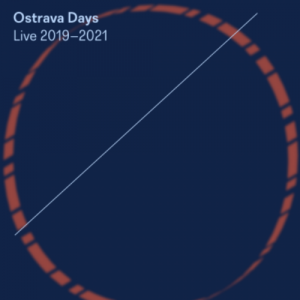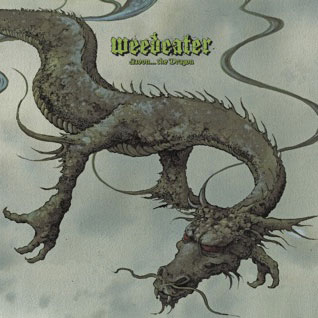 Ostrava Days, for those not in the know, is quoted as being “…a platform for making the music of our time…. No attention was paid to what the powerful cultural institutions expected or supported”.
Ostrava Days, for those not in the know, is quoted as being “…a platform for making the music of our time…. No attention was paid to what the powerful cultural institutions expected or supported”.
In the world of composition, there’s a constant struggle to stage “new” works — where new often means anything written in the last fifty years — so the fact we have a composer (Petr Bakla) who was a spritely thirty-nine at the time his piece There Is An Island Above The City was performed is pretty substantial. Compare that to the UK’s Proms, where there are a smattering of commissions and a broad avoidance of much past the 1950s is inevitable. Important stuff.
Also important is that, as a double CD, this is giving space to “name” composers — insofar as Iannis Xenakis, Christian Wolff and Frederic Rzewski are name composers who still aren’t well-known outside of avant-leaning circles — as well as names that are new on me (I’m by no means an expert, but I do know composition is a slow world for old white men).
Wolff is perhaps best known for the awkward theatrical vanguardism of a kind of John Cage / Black Mountain confluence, so it’s lovely to hear a later work Small Orchestra Piece from 2019 — tightly rhythmic, tender, querulous and dynamic without being disjunctive or discontinuous. A modicum of the kinds of musical drama the US avant-garde tended away from in the ’50s and ’60s in favour of a kind of ascetic intellectualism, so the real joy of this for me is making me realise I need to listen to more Wolff.
Petr Kotík‘s Spontano is an oddity, a kind of unfurling of chordal detail. Sparing and cautious piano and brass notes lead into sustained chords, the chords detailed carefully by orchestral timbres. It puts me in mind of two things (neither of which it sounds remotely like), the spectralism of Tristan Murail and the sustained timbral investigations of Phill Niblock — both of which it predates. It also would sit neatly next to Pauline Oliveros, insofar as its unhurried ebb is closer to meditative slow breathing than an orchestral pulse. Odd, and beguiling.
CD2 opens with aforementioned young whippersnapper Petr Bakla (b. 1980) and his There Is An Island Above The City. It’s a diffuse, suspenseful piece, nominally doting on an almost fanfare-y motif, but shifting and slipping into solemn and discordant modes. A constantly renewed tension, but a tension that’s renewed carefully and judiciously. Ana Sokolović‘s Evta likewise is a masterful exposition on theme and variation on simple motifs.
Centred around a violin but refracted through several registers, it’s a piece with its foot in several generations — the kind of rigorous composition around a motif of the big boys (JS Bach et al) but the sensuous drama of a Gustav Mahler, the timbral care of a Xenakis or Helmut Lachenmann — a real tour de force. And despite imposing no small virtuosity on the performer, it sits without impediment in the ear. Oh, and the massed pizzicatos towards the end are a total delight, like a sudden refreshing shower of violins. She’s gotten herself straight onto the list of “why didn’t I know about her before?”
Which is not so much the case with Georgina Bowden‘s The Fainting Sun, a choral work with a disconcerting presence — voices bending in and out of tonalities, a work that always sounds like human voices, but perennially on the verge of fracturing. Uncanny in a way that I can only really compare to György Ligeti‘s Lux Aeterna, which it sounds nothing like in reality.
Finally, Miroslav Srnka‘s Eighteen Agents, for nineteen strings — a piece that exemplifies the Ostrava New Orchestra‘s togetherness, a fluttering butterfly of a piece running up and down and around and about and a careful exposition of plenty of bowing effect — crescendos feeling substantially larger than a relatively small ensemble of strings, clusters sounding like malevolent bees. Plenty of careful bow directions and the sort of violin invention that ties the whole collection in a nice little bow with a strong link to much of Xenakis’ work.So for a conclusion then — this is a lovely collection, one that deserves to be more widely listened to and, for my money, a fairly golden example of how much talent and invention there is within contemporary composition.
-Kev Nickells-



